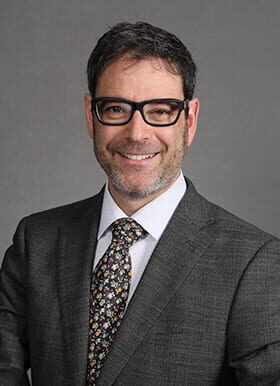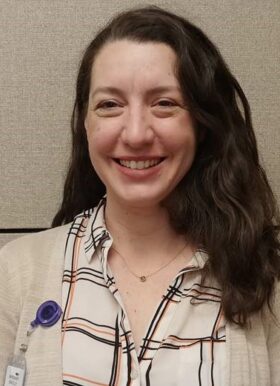Peers in Anesthesiology Supporting a Fair Environment (PIA SAFE) is a peer-based program in the Department of Anesthesiology aimed to help address concerns about negative behaviors, conflicts, and microaggressions experienced by members of the department.
Our department is continually working toward building a positive and safe culture that creates an environment in which everyone can thrive and actualize their potential.
In collaboration with the university-wide SAFE program, our department will further curate content and training to assure our members champion positive culture in all areas.
PIA SAFE Champions
PIA SAFE Champions are available to provide guidance and counsel for those wishing to speak to someone following a conflict, not to report concerns of mistreatment or unprofessional behavior. To report a concern, please utilize the School of Medicine’s Safe Reporting program.

Michael Avidan, MBBCh, FCA SA
Dr. Seymour and Rose T. Brown Professor of Anesthesiology; Head of the Department of Anesthesiology
- Email: [email protected]
Founding Director of the Initiative for Quality Improvement, Research and Informatics (INQUIRI)
Admin; Lauren LaChance

Archana Bharadwaj, MD, MPH, CHES
- Email: [email protected]
Central Michigan University College of Medicine
* Scholar

Jamie Brown-Shpiegel, MD
Assistant Professor of Anesthesiology; Assistant Residency Program Director of Recruitment, Integration, and Wellbeing; Trauma Fellowship Program Director; POD 4 Leader
- Email: [email protected]

Kelly Chilson, MD
Clinic Director of CT Pediatric Anesthesiology; Professor, Anesthesiology
- Email: [email protected]
FAQs
PIA SAFE Champions are individuals who possess the motivation, skills, knowledge, and courage to be a catalyst for cultural change!
- PIA SAFE champions are foremost a resource and ally for colleagues.
- They are here to listen, support, and guide you should you have a concern or need help.
- They are trained in tools and techniques to be an upstander. They are able to constructively intervene and support colleagues who experience or witness bullying, abuse, microaggressions, and other events that erode the psychological safety of our institution.
- They are trained in providing feedback to support the success and continual growth of our team members
- They are educated in the systems and resources offered by the university and department for additional methods of support.
There are three ways to connect with a Champion:
- Contact Erin Herrera, who will assign a Champion to you, or
- Contact a Champion above
- Complete the PIA SAFE Check-in Form
We know everyone is busy, so our goal for PIA SAFE training is to maximize impact for your time commitment. Much of our training, exercises, and outreach can be done on your own time.
PIA SAFE training begins with 10 weeks of short weekly engagement exercises. These only take a few minutes to complete but provide you with skills, education, and exercises to get you thinking.
At the end of the 10 weeks, we will have an in-person retreat where we come together with other PIA SAFE champions to practice skills and learn more about feedback and upstanding
After your retreat, you will receive a monthly newsletter with updates, tips, and further engagement activities, events, and strategies.
Complete the form below if you’re interested in becoming a PIA SAFE Champion!
We offer a range of materials that are useful for both PIA SAFE Champions and anyone interested in fostering a safer, more inclusive environment. These resources can help deepen your understanding of the program and support your efforts, whether you’re just getting started or looking to enhance your engagement.
Being an upstander
An upstander is someone who actively takes steps to support others in situations of injustice, harm, or mistreatment, rather than being a passive bystander.
Cognitive reframing
One of the most effective ways that we can help support colleagues who are struggling with an adverse event is to help them reframe how they are feeling and thinking.
Conflict in the workplace
Identifying the different types of conflict can help in managing them effectively, preventing escalation, and fostering a more collaborative environment.
Creating accountability
Team accountability is essential for success because it can lead to reduced conflict, better collaboration, improved communication and trust, and enhanced productivity and performance.
Debriefing an event
A constructive debrief allows individuals and teams to discuss the event in a non-judgmental way, identify strengths and areas for improvement, and promote learning and growth.
Emotional intelligence
Emotions can be big, messy, and complicated, but they help us navigate the world. We all need to learn to recognize and manage feelings without being controlled by them.
Identifying substance abuse
It is essential to recognize the signs and symptoms of substance abuse to ensure timely intervention and support.
PIA SAFE campus resources
One of the best parts of working at WashU Medicine is the plethora of incredible programming and resources available to us!
Psychological first aid (PFA)
PFA is a set of practical, supportive actions aimed at helping individuals in the immediate aftermath of a crisis or traumatic event.
Talking the talk AND walking the walk
It is vitally important both as PIA SAFE champions, as well as members of WUDA, that we all do our part to create the culture and environment we desire.
Talking with someone after a traumatic event
The goal is to create a safe and supportive environment where the individual feels heard and understood, which requires sensitivity, empathy, and respect.
Join PIA SAFE
Are you interested in joining PIA SAFE to address mistreatment and unprofessional behaviors in the learning environment?
We encourage all who want to champion positive change within our department to become PIA SAFE champions. As a PIA SAFE Champion we will provide you with hands-on, in-person training in the following areas;
- Listening skills & navigating difficult conversations
- Bystander & feedback training
- Recognizing and addressing microaggressions/microinvalidations/ misclassifications and bias
- Recognizing and verbalizing positive behavior to reinforce expectations







